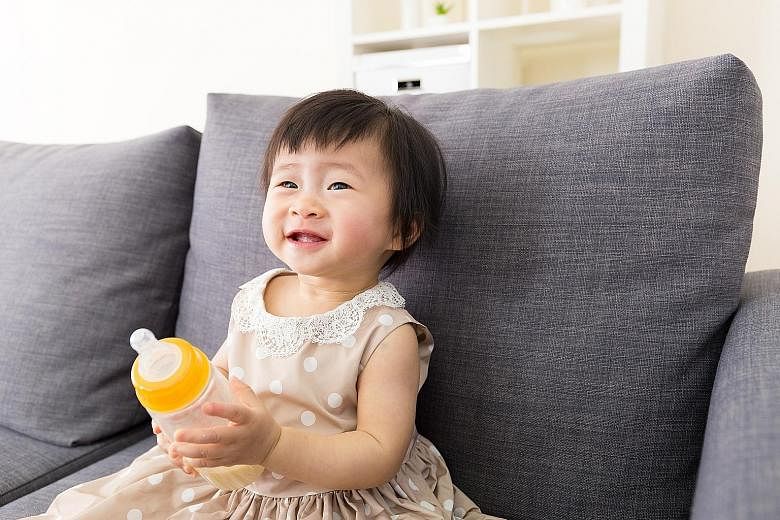95% Percentage of formula milk sales in 2015 that comprised "premium" and speciality milk. Standard milk sales made up the other 5 per cent, and such formula typically costs less than half the price of "premium".
The best way to put the brakes on infant milk formula price hikes is for parents to vote with their wallets, economists and pricing experts say.
Its average price has more than doubled over the last decade, leading the Government to announce measures to address the issue last week amid public unhappiness. But a report by the Competition Commission of Singapore (CCS) found no evidence of anti-competitive practices by the six major manufacturers dominating the market here.
Instead, the companies had embarked on aggressive marketing efforts, competing with one another to build "premium" brand images and targeting hospitals to gain a "first-mover" advantage as parents tend not to switch brands, the year-long inquiry found.
It appears to be an effective strategy - an estimated 95 per cent of formula milk sales in 2015 comprised "premium" and speciality milk, with just 5 per cent for "standard" milk, which costs less than half the price of premium milk, according to the CCS.
High demand for products perceived to be of better quality is among the factors that have propelled formula milk prices here to one of the most expensive in the world, along with Hong Kong and China.
Managing partner at pricing consultancy Simon-Kucher and Partners Jochen Krauss said that while import and other costs account for part of the price differences across countries, firms ultimately fix prices based on the perceived value of its product and the spending power of consumers.
There are cheaper options available on shelves with little difference in nutritional properties, the authorities have said, as they plan to step up consumer education efforts.
Professor William Chen, director of Nanyang Technological University's food science and technology programme, examined the nutrition labels of three formula brands at different price points.
He found that while the more expensive ones had additional ingredients, all of them are found in human milk. There were varying amounts of some ingredients across formulas, though these "may not have any obvious correlation with positive effects in infants".
Marketing executive Hayley Pereira, 28, said stage one formula for newborns is the most costly. "The problem is that a lot of women need to supplement in the beginning. Stage one should be the cheapest because it is usually bought out of necessity," said the mother of one, with another child on the way.
"At baby fairs. there're always promotions for stage two onwards but nothing for stage one," she said.
A check by The Sunday Times at three supermarkets found that most stage one formulas range between $50 and nearly $70 for 800g to 900g tins. More price variety and discounts were found for higher stages.
Formula is not needed past the age of 12 months, but many of the products are for children aged above one, including those for children aged six years and above.
The authorities will be tightening advertising and labelling regulations for formula milk for infants up to 12 months, and prohibiting the use of nutrition or health claims and idealised images.
Many parents that The Sunday Times spoke to said some brands misleadingly imply on their labels that they can make children smarter. But Mr Abdul Rahman, 32, who has six-month-old twins, said: "Parents should take the responsibility of reading the labels carefully."
•Additional reporting by Tang Fan Xi


